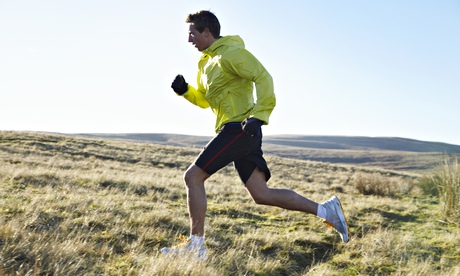
Scarcely could the dreamers who created the network of global positioning satellites for the US Department of Defence have thought that on one bright day in the future, pinpoint location from space and running would come together in perfect synergy, allowing runners to upload their penis-shaped jogging routes.
This phenomenon is just the latest incarnation of a growing trend towards the monitoring and sharing of our exercise data. We all know people who upload their running paths on to social networks, but unlike other tedious types of self-aggrandisement on social media, we should be cock-a-hoop at our friends bragging about their fitness routines online.
Since the messenger Pheidippides ran for two days to Sparta, and in the process coined the concept of the marathon through his relentless, tiresome bragging about the achievement, we’ve been oversharing our feats of athleticism with others. When you have to explain to dinner guests that the dayglo joggers coming down your cul-de-sac just to turn around midway are using your road to illustrate a GPS testicle hair on their evening run, you will receive nods of understanding as many of them will be wearing devices to monitor their own health and whereabouts. Full disclosure: I am writing this wearing two devices that are monitoring my every move, neither of which is court-ordered.
By the end of the year, millions are predicted to be using software and technology to track their health. Phallocentric evening runs will at least break the tedium of your Facebook feed in which your friends’ routes, gym photos and Fitbit achievements will increasingly be shared. Yet talking about our health on social media could be the first genuinely positive type of online bragging.
Whereas we’ve long since agreed that photographs taken of plates of food in restaurants are an obnoxious form of boasting and the drip-feed of wedding and baby photos is relentless, seeing our friends with 10k race medals around their necks and divulging their resting pulse rate may inspire us all. And with our growing obesity crisis, it wouldn’t be such a bad thing to become a nation of gym bunnies. For wishful thinkers, there is even some evidence that just observing the exercise of others can make us fitter.
Nobody wants to feel guilty about spending the occasional weekend on the sofa binge-watching television or be subjected to the vanity of those whose main pastime is working on their deltoids, but as far as technological crazes go, health bragging is relatively benign.
This gamification of health apps is built in for two reasons: it encourages others to adopt the technology and allows you the thrill of boasting about real achievements. So far I have resisted the urge to share my steps taken or hours of sleep with others because I can’t imagine anything more boring, but the rewarding notifications are motivating. The process of walking to work begins to feel like a competition in which it is possible to improve your score, encouraging you to make different choices like taking the stairs.
We should welcome the trend towards greater self-monitoring of our health and the sharing of our exercise achievements. There is a measure of vanity to it, of course, but if it inspires us to go for a jog, then it’s a step towards a healthier, happier online and offline world. You are owed some congratulations from your friends for going on a strenuous run, penis-shaped route or otherwise. It’s a great deal more impressive and worthy of your peers’ attention than ordering a photogenic pudding.

